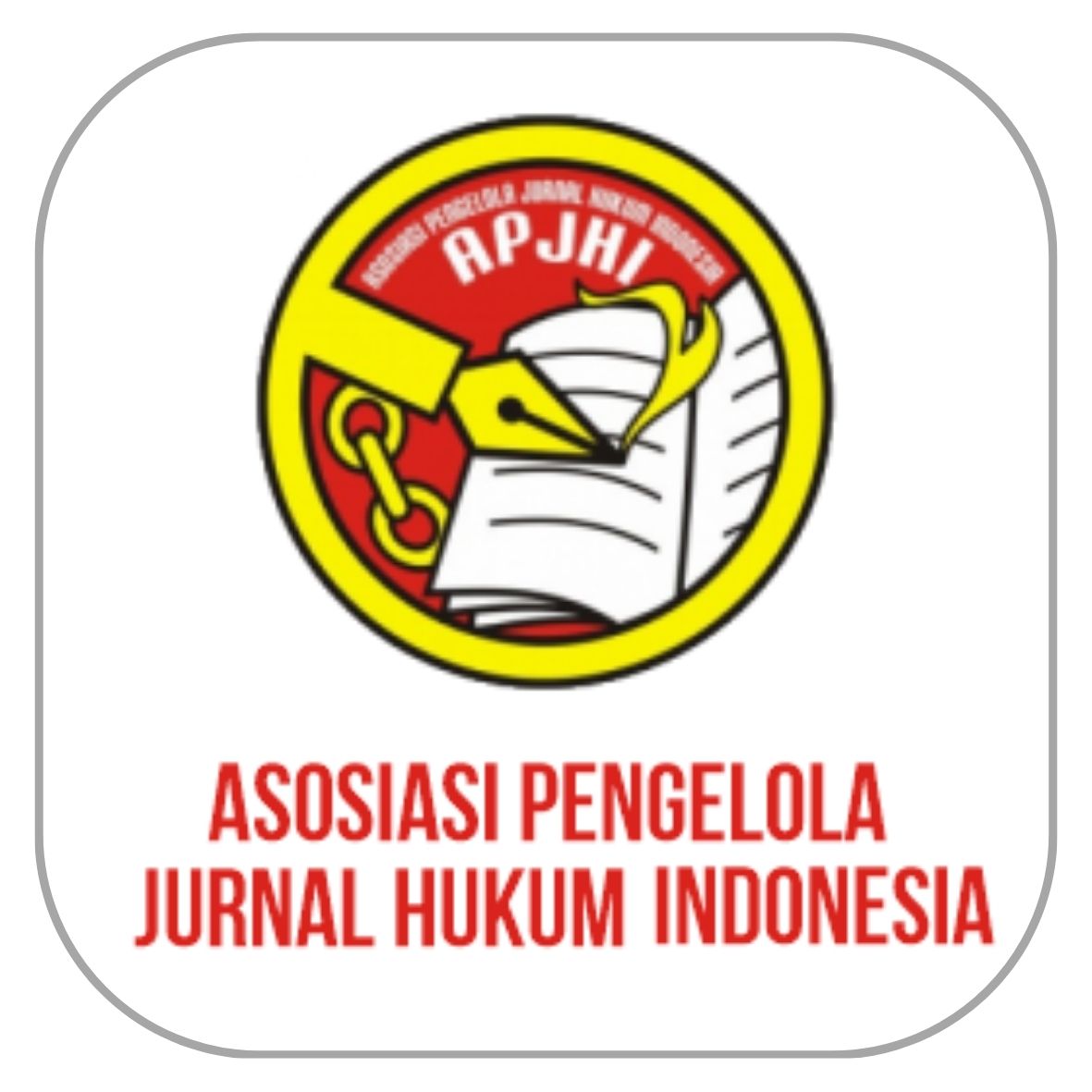The Existence of Legal Protection for Female Workers Against Sexual Exploitation Mode 'Staycation'
DOI:
https://doi.org/10.46257/jrh.v28i1.967Keywords:
Female Workers, Legal Protection, Sexual Exploitation, Staycation, Sexual Violence Criminal LawAbstract
The term staycation as a connotation of sexual activity in a certain place has become increasingly popular in society, especially after the phenomenon of a viral case in the public. Bosses invited female workers in the company to engage in sexual activities in exchange for certain promises. Female workers are often vulnerable to sexual exploitation in the workplace. This requires legal protection to reduce risks and protect the rights of female workers. This article uses a normative juridical research method with a statutory approach based on various provisions in the TPKS Law and several relevant literatures to analyze aspects of legal protection for female workers. This study finds that the TPKS Law provides an important legal basis to protect women workers from sexual exploitation, including the provision of victims' rights to restitution, handling, recovery, and protection through the Witness and Victim Protection Agency (LPSK). This protection is important to prevent backlash from perpetrators and provide a sense of security to victims. Towards effective implementation of legal protection, socialization and education are needed in an effort to increase legal awareness in the community and reduce the incidence of sexual exploitation in the work environment.
Downloads
References
Utami, D. W., & Pinasti, V. I. S. (2021). Stay Vacation (Stay Cation) Sebagai Gaya Hidup Mahasiswa Yogyakarta. Jurnal Pendidikan Sosiologi, 10(4), 1–15. Retrieved from https://journal.student.uny.ac.id/index.php/societas/article/view/17173
Rizaldy, Z. (2022). Fenomena Staycation dan Hookup Culture di Kalangan Remaja. Kumparan Video.
Oktaria, D. S. (2020). Analisis Kebijakan Standar Pelayanan Minimum Bagi Pengguna Kereta Api Mrt Jakarta. Jurnal Komunikasi Universitas Garut, 6(November), 4–5. https://doi.org/10.10358/jk.v6i1.814
Firmanda, H., Azlina, I. S., & Septipah, I. (2023). Perlindungan Korban Kekerasan Seksual yang Mengalami Victim Blamingdi Media Sosial Berdasarkan Aliran Realisme Hukum. Reformasi Hukum, 27(1). https://doi.org/10.46257/jrh.v27i1.489
Fadliati, S., & Sukiati, S. (2023). Eksploitasi Pekerja Perempuan Melalui Modus Staycation dalam Perpanjangan Kontrak Kerja. Al-Adalah: Jurnal Hukum dan Politik Islam, 8(2), 235–254. https://doi.org/10.30863/ajmpi.v8i2.5476
Zulyadi, R., Ramadhan, M. C., & Siregar, F. Y. D. (2023). Law Enforcement of the Crime of Sexual Harassment with the Staycation Mode Against Women Labor. International Journal of Research and Review, 10(7), 639–649. https://doi.org/10.52403/ijrr.20230775
Mariyam, S., & Satria, A. P. (2023). Fenomena Tidur Bersama Bos : Potret Dominasi Pria di Tempat Kerja. GANEC SWARA, 17(2), 645. https://doi.org/10.35327/gara.v17i2.468
Bagaskara, M. (2023). Kasus Staycation Karyawati di Cikarang, Komnas HAM: Pelaku Bisa Dijerat UU TPKS. Tempo.
The SMERU Research Institute. (2022). Kebijakan Pencegahan Eksploitasi, Kekerasan, dan Pelecehan Seksual (PEKPS).
Komnas Perempuan. (2023). Lembar Fakta Catatan Tahunan Komnas Perempuan Tahun 2023. Indonesia.
Purba, D. A. M. (2019). Upaya Perlindungan Hukum Terhadap Korban Tindak Pidana Perdagangan Manusia Ditinjau Dari UU No.: 21 Tahun 2007 Tentang Pemberantasan Tindak Pidana Perdagangan Orang. Universitas Quality. Universitas Quality.
Khristianti Weda Tantri, L. M. (2021). Perlindungan Hak Asasi Manusia Bagi Korban Kekerasan Seksual di Indonesia. Media Iuris, 4(2), 145. https://doi.org/10.20473/mi.v4i2.25066
Siaran Pers Komnas Perempuan. (2023). “Staycation”, Modus Eksploitasi Seksual Terhadap Perempuan di Dunia Kerja.
Savira, Y. (2023). Perlindungan Hukum Terhadap Perempuan dan Anak Terkait Kekerasan Seksual di Kabupaten Bogor (Studi di P2TP2A Wanoja Mitandang). Universitas Lampung.
Bayusuta, B. B., & Suwanto, Y. (2022). Analisis Yuridis Undang-Undang Tindak Pidana Kekerasan Seksual dalam Penegakan Hukum di Indonesia. Souvereignty: Jurnal Demokrasi dan Ketahanan Nasional, 1(1), 37–45. https://doi.org/10.13057/souvereignty.v1i1.199
Risal, M. C. (2022). Perlindungan Hukum Terhadap Korban Tindak Pidana Kekerasan Seksual Dalam Lingkungan Pendidikan. Jurnal Ilmu Hukum Tambun Bungai, 11(1), 75–93. https://doi.org/10.24252/ad.v1i2.34207
Saefudin, Y., Wahidah, F. R. N., Susanti, R., Adi, L. K., & Putri, P. M. (2023). Tindak Pidana Kekerasan Seksual dan Perlindungan Hukum bagi Korban Kekerasan Seksual di Indonesia. Kosmik Hukum, 23(1), 24–34. https://doi.org/10.30595/kosmikhukum.v23i1.17320
Partai Buruh. (2023). Kekerasan Seksual di Tempat Kerja, Sebuah Fenomena Gunung Es.
Rani, F., Ismandianto, I., & Kirana, K. (2021). Kebijakan Pemerintah Indonesia dalam Menangani Kasus Eksploitasi Seksual Komersial Anak di Indonesia. Nakhoda: Jurnal Ilmu Pemerintahan, 20(2), 14–25. https://doi.org/10.35967/njip.v20i2.202
Employment and Social Development Canada. (2021). Requirements For Employers To Prevent Harassment And Violence In Federally Regulated Workplaces. Government Of Canada.
Coorsh, K. (2014). Montreal Catcallers Target Of New Campaign: “We don’t owe you anything.” CTVNews.ca.
Republik Indonesia. Undang-Undang Nomor 12 Tahun 2022 Tentang Tindak Pidana Kekerasan Seksual.
Downloads
Published
Issue
Section
License
Copyright (c) 2024 Selvi Kurniawati, Zahra Putri Maharani Pertiwi, Agus Nurhadi

This work is licensed under a Creative Commons Attribution 4.0 International License.






























































